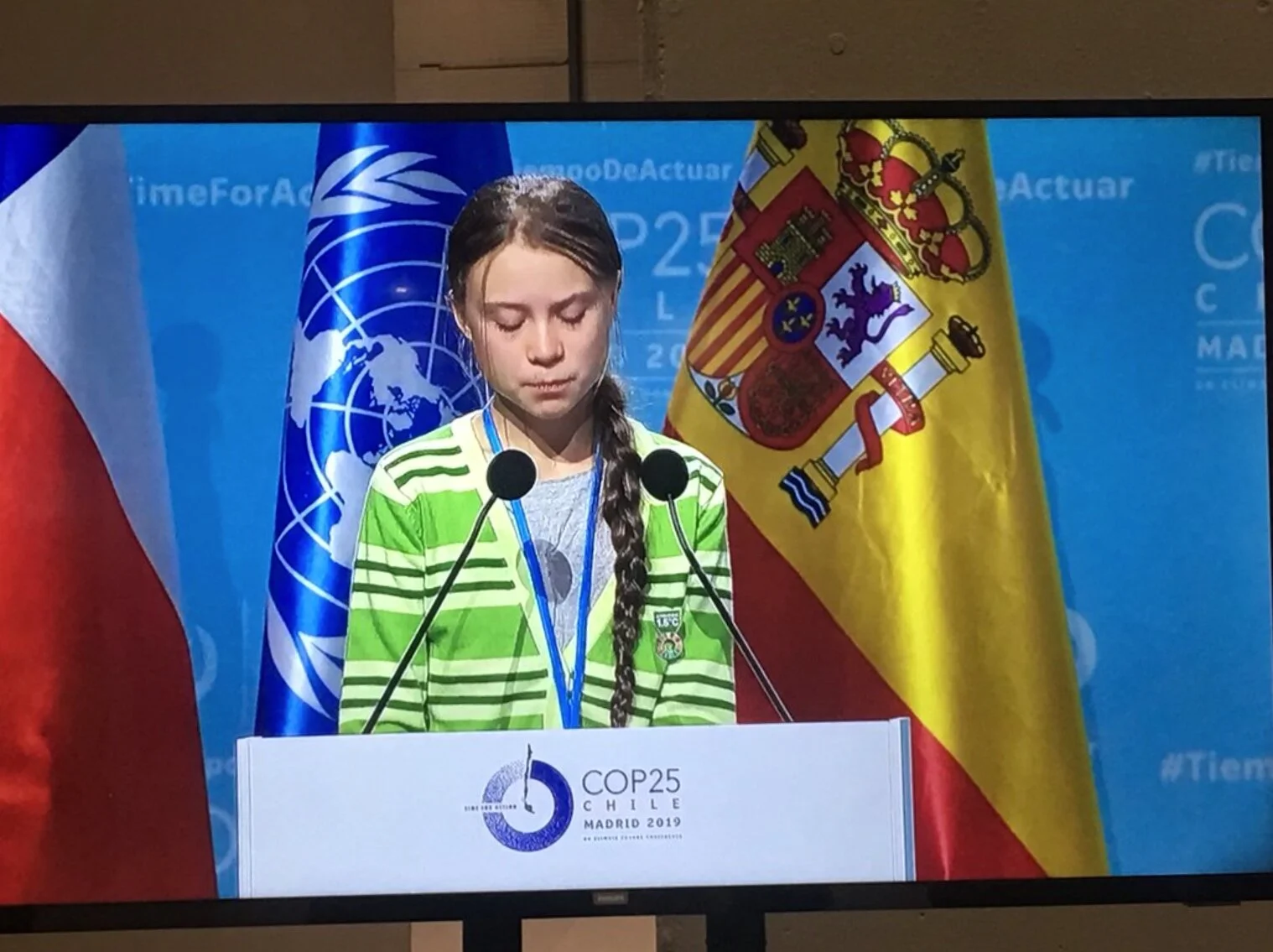by Teresa Kramarz
She sits small on the large stage, her face contorted trying to contain emotion as she labours to push her words out; on the brink of crying. She tells those listening:
“This is all wrong, I shouldn’t be up here. I should be back in school on the other side of the ocean.”
And this is what we see and hear as we watch Greta Thunberg, the 16-year-old girl who just one year ago started a global climate movement, speaking to world leaders meeting in New York for the United Nations Climate Summit.
The adults on stage watch her, the audience watches, the young people outside the UN holding signs watch, and that moment on stage in which she holds so many of us at the edge of our seat is played over and over in an endless chain of social media tweets and likes. We all watch with some mixture of fascination, awe, inspiration and curiosity.
Yet there is a line past which Thunberg’s activism can become spectacle. The young person, who in her own words has felt the loss of her childhood because of empty promises from state leaders who were supposed to be the keepers of a healthy planet for her generation, becomes a human sacrifice that none of us should accept.
Unacceptable sacrifice
Her suffering - for our collective benefit - becomes part of what we used to deem an unacceptable sacrifice, and in this time of desperate politics, adults allow it to continue. It is time that Thunberg, who sparked millions of people to action, got some rest. It is time for proper accountability relationships to be redrawn between citizens and their political representatives, consumers and producers, civil society organizations and their members, children and adults.
This article is directed at the adults left in the room.
After all, when our states raise taxes or run deficits, wage war abroad or build infrastructure at home, freeze wages or create training programs, legislate clean water or relax industrial waste pollution, we don’t rely on our children to scream loud enough for our governments to create the change we need.
We have accountability mechanisms in place. We agree on shared purposes, establish who is going to be held to account, to whom and for what. Then we regulate processes, standards and sanctions.
In our regular lives, we read to become better informed and ask political candidates hard questions during election campaigns. We join organizations, discuss the issues with our neighbours on our street and create or sign petitions. Once these political demands have been articulated, we hold public leaders and private companies to their promises by naming, shaming or leaving them.
We vote with our ballots and with our wallets as consumers to orient social action. We try to buy goods produced responsibly and shun those suspect of being socially or environmentally damaging. We take legal action when required. We cajole each other to keep defending agreed goals in our workplace and our neighbourhoods.
Collective actions
Our best social achievements are the products of relentlessly negotiating goals and then enforcing them until we accomplish peace, a liveable wage or a safe place to live and thrive. Though many of these hard-fought battles have been preceded by untold human suffering and environmental disasters.
Just as we have mechanisms to create rules and assign responsibility for public, private and voluntary action in our diverse societies, we also have established modes of sanctioning rule-breakers who individually, and for private benefit, undermine our collective public goods. These accountability mechanisms of our everyday lives need to reassert themselves in the most comprehensive way possible as we face an existential threat to our planet.
This week has been about a collective will to prioritize our quality of life over “endless economic growth,” in Thunberg’s own words, and in some cases setting up specific accountability metrics.
Performing accountability
City mayors, including Toronto’s John Tory, have declared climate emergencies, joining 800 other cities around the world who have done this so far. Companies are supporting the climate strikes by closing stores, temporarily ceasing operations and launching their own digital strikes in which their websites go dark.
Giants like Amazon are pledging to drastically reduce their carbon emissions ahead of their own targets. Pension funds and insurers are committing to carbon neutral portfolios by 2050. Some academic institutions, like the University of California, are also divesting from fossil fuel holdings their billions of dollars in pension funds and endowments.
Some media outlets are changing the language they use when reporting on climate, introducing into their style guides wording like “climate crisis” instead of “climate change.” Some professors are cancelling their regular classes and holding teach-ins, open and participatory fora for lecturing and debating large social issues that are reminiscent of ones that helped galvanize student protests against the war in Vietnam.
Children, who are so much at the core of this fight, have resorted to domestic courts and complaint mechanisms in international conventions. Most recently they have filed a complaint to the UN Committee on the Rights of the Child, against the five largest emitting states that are signatories of the convention. They accuse states of violating their rights by subjecting them to the devastating effects of climate change.
To reassert proper relationships of accountability, the next steps must include ensuring compliance and effecting sanctions wherever failures to deliver results start to emerge. After all, we cannot set standards if we as citizens, consumers and members of civil society are not equally committed to enforcing them.
Just as we sanction those who undermine our political resolve for peace, equity or human security we have to sanction with all the accountability mechanisms we already have at our disposal those who undermine carbon emission standards and maximum carbon budgets. Adults must reassert and enforce the collective will – not marvel at a young person’s self-control on a global stage to get that work done.
This article first appeared in The Conversation: https://theconversation.com/reasserting-proper-relationships-of-accountability-in-the-age-of-greta-123864
Image credit: "The Greta Thunberg effect, Talk, Panel discussion at COP25 - Dec 11 - IMG_4465" by John Englart (Takver) is licensed underCC BY-SA 2.0

